Contents
- 1 Introduction
- 2 Understanding Ceros Pages and WordPress: A Brief Overview
- 3 The Importance of Choosing the Right Platform
- 4 Ceros Pages for Blogging and Ecommerce
- 5 WordPress for Blogging and Ecommerce
- 6 Feature Comparison: Ceros Pages vs. WordPress
- 7 Choosing the Right Platform for Your Needs
- 8 FAQs
- 9 Conclusion
Introduction
In the ever-evolving digital landscape, the choice between content management platforms has become a critical decision for businesses and individuals alike. Two prominent players in this arena are Ceros Pages and WordPress, each offering unique features and capabilities for blogging and ecommerce. This comprehensive article will delve into the strengths, limitations, and considerations of these platforms, empowering you to make an informed decision that aligns with your specific needs.
Understanding Ceros Pages and WordPress: A Brief Overview
Ceros Pages is a visual storytelling platform that enables users to create engaging and interactive content without the need for extensive coding knowledge. It offers a drag-and-drop interface, a wide range of design tools, and the ability to incorporate multimedia elements seamlessly.
On the other hand, WordPress is a versatile content management system (CMS) that has emerged as a dominant force in the blogging and ecommerce realms. It provides a user-friendly interface, a vast ecosystem of plugins and themes, and a powerful set of tools for content creation, management, and optimization.
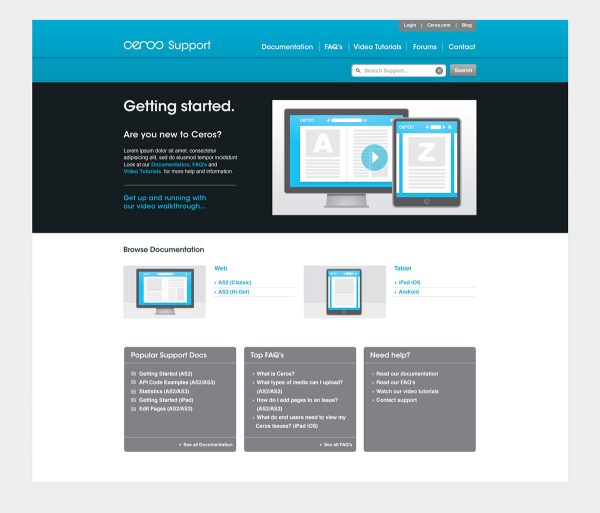
The Importance of Choosing the Right Platform
The choice between Ceros Pages and WordPress can have a significant impact on the success of your blogging and ecommerce ventures. The right platform can enhance your online presence, improve user engagement, and ultimately drive business growth. Understanding the unique strengths and limitations of each platform is crucial in aligning your selection with your specific goals and requirements.
Ceros Pages for Blogging and Ecommerce
Ceros Pages: A Visual Storytelling Platform
Ceros Pages excels in creating visually striking and interactive content, making it an attractive choice for businesses and individuals looking to deliver immersive user experiences. Its intuitive drag-and-drop interface and extensive design capabilities allow users to craft visually captivating stories and product showcases without the need for extensive coding skills.
Blogging with Ceros Pages: Advantages and Limitations
Advantages:
- Visually Engaging Content: Ceros Pages enables the creation of visually striking blog posts that leverage multimedia elements, animations, and interactive features to captivate readers.
- Seamless Interactivity: The platform offers a range of interactive elements, such as hover effects, scrolling triggers, and user-driven interactions, which can enhance engagement and encourage deeper exploration of your content.
- Responsive Design: Ceros Pages ensures that your blog content is optimized for seamless viewing across various devices, from desktops to mobile devices.
Limitations:
- Limited Blogging-Specific Features: Ceros Pages may lack some of the advanced blogging-specific features found in dedicated CMS platforms like WordPress, such as robust content management tools, SEO optimization, and community engagement features.
- Hosting and Domain Management: Ceros Pages handles the hosting and domain management for your content, which may not align with the preferences of users who prefer more control over their website’s infrastructure.
Ecommerce with Ceros Pages: Creating Immersive Product Experiences
Advantages:
- Captivating Product Showcases: Ceros Pages excels at creating visually stunning and interactive product presentations, allowing businesses to showcase their offerings in a compelling and engaging manner.
- Immersive User Experiences: The platform’s design capabilities enable the creation of highly interactive and immersive ecommerce experiences, which can enhance customer engagement and drive sales.
- Responsive and Mobile-Friendly: Ceros Pages ensures that your ecommerce content is optimized for seamless viewing and interaction across various devices, providing a consistent and user-friendly experience.
Limitations:
- Limited Ecommerce-Specific Features: While Ceros Pages offers tools for creating visually striking product showcases, it may lack some of the advanced ecommerce-specific features found in dedicated platforms, such as robust shopping cart functionality, inventory management, and payment processing integrations.
Get Started with Ceros
To get started with Ceros Pages, you can sign up for a free trial or explore their pricing plans. The platform offers a user-friendly onboarding process, comprehensive documentation, and a range of resources to help users quickly become proficient in creating engaging content and immersive experiences.
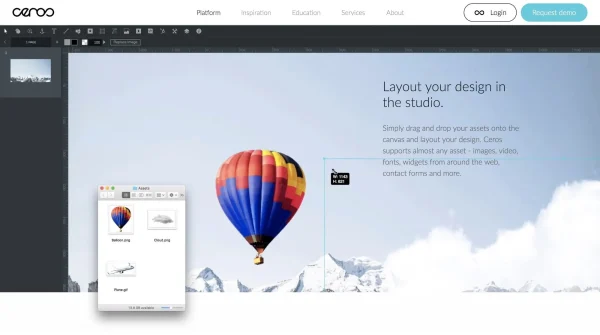
WordPress for Blogging and Ecommerce
WordPress: A Versatile Content Management System (CMS)
WordPress has established itself as a leading CMS, renowned for its versatility, user-friendly interface, and vast ecosystem of plugins and themes. It has become a go-to choice for both bloggers and ecommerce businesses, offering a comprehensive set of tools and features to meet a wide range of digital needs.
Blogging with WordPress: A Proven Platform
Advantages:
- Extensive Blogging Features: WordPress provides a robust set of blogging-specific features, including content management, SEO optimization, community engagement tools, and advanced publishing options.
- Vast Ecosystem of Plugins: The WordPress plugin ecosystem offers a wide range of solutions to enhance your blogging capabilities, from SEO optimization to social media integration and beyond.
- Customization and Flexibility: WordPress allows users to customize their blog’s appearance and functionality through the use of themes and plugins, enabling them to create a unique and tailored online presence.
Limitations:
- Learning Curve: While WordPress is generally user-friendly, it may have a steeper learning curve compared to some drag-and-drop website builders, particularly for users with limited technical experience.
Ecommerce with WordPress: A Flexible Option
Advantages:
- Ecommerce Plugins and Integrations: WordPress offers a vast array of ecommerce plugins, such as WooCommerce, that provide comprehensive shopping cart functionality, payment processing, inventory management, and more.
- Customization and Scalability: WordPress’s flexibility and extensibility enable businesses to create highly customized and scalable ecommerce solutions to meet their specific needs.
- Community and Support: The WordPress ecosystem boasts a vast community of developers, designers, and users, providing a wealth of resources, tutorials, and support to help businesses succeed with their ecommerce ventures.
Limitations:
- Complexity for Non-Technical Users: While WordPress offers powerful ecommerce capabilities, the setup and management of a WordPress-based ecommerce store may require a higher level of technical expertise compared to some dedicated ecommerce platforms.
Get Started with WordPress
To get started with WordPress, you can sign up for a WordPress.com account or self-host your WordPress website. The platform provides a user-friendly onboarding process, extensive documentation, and a thriving community to support users in their journey.
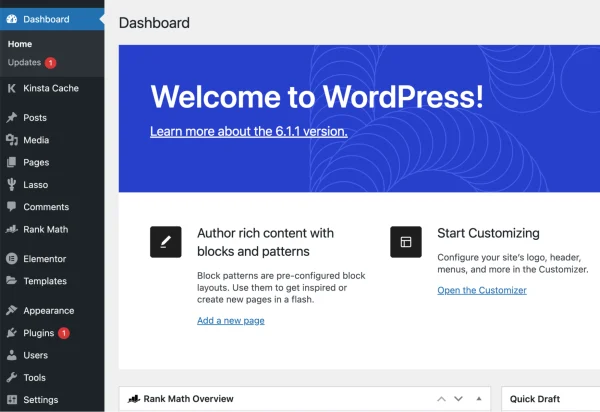
Feature Comparison: Ceros Pages vs. WordPress
Ease of Use and Learning Curve
Ceros Pages: Ceros Pages is known for its intuitive drag-and-drop interface and visual-centric approach, making it relatively easy for users to create engaging content without extensive technical knowledge.
WordPress: While WordPress is generally user-friendly, it may have a steeper learning curve compared to Ceros Pages, particularly for users with limited technical expertise. However, the platform’s extensive documentation and community support can help users overcome the initial learning curve.
Design and Customization Options
Ceros Pages: Ceros Pages excels in visual design and customization, offering a wide range of design tools, interactive elements, and the ability to incorporate multimedia seamlessly.
WordPress: WordPress provides a vast ecosystem of themes and plugins that allow for extensive design customization and personalization, catering to users with varying levels of design expertise.
Content Management and Editing
Ceros Pages: Ceros Pages focuses on creating visually captivating content, providing a streamlined content management and editing experience tailored for visual storytelling.
WordPress: WordPress offers a robust content management system, with features such as version control, collaborative editing, and advanced publishing options, making it a powerful platform for content management and editing.
SEO and Search Engine Optimization
Ceros Pages: Ceros Pages provides tools and features to optimize content for search engines, but may not offer the same level of comprehensive SEO capabilities as dedicated CMS platforms like WordPress.
WordPress: WordPress is known for its strong SEO foundations, with a wide range of plugins and tools to enhance search engine visibility, including on-page optimization, metadata management, and schema markup integration.
Scalability and Performance
Ceros Pages: Ceros Pages is designed to handle high-performance and scalable content, with features like responsive design and optimized asset delivery to ensure smooth user experiences.
WordPress: WordPress, when properly configured and optimized, can scale to handle large-scale websites and ecommerce operations, with a range of hosting options and performance optimization plugins available.
Cost and Pricing Models
Ceros Pages: Ceros Pages operates on a subscription-based pricing model, with various plan options to accommodate different business needs and budgets.
WordPress: WordPress offers both free and paid options, with the self-hosted WordPress.org version being free to download and use, while WordPress.com provides paid plans with additional features and hosting services.
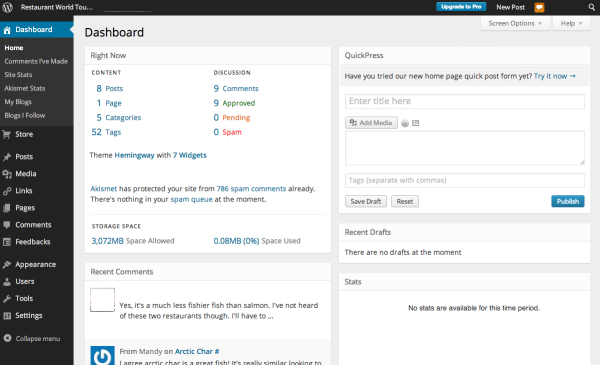
Choosing the Right Platform for Your Needs
When deciding between Ceros Pages and WordPress, it’s crucial to consider your specific business goals, technical expertise, and future growth plans.
Your Business Goals and Objectives:
- If your primary focus is on creating visually stunning and interactive content, Ceros Pages may be the more suitable choice.
- If your business requires a more comprehensive set of blogging or ecommerce features, WordPress may be the preferred platform.
Technical Expertise and Resources:
- If you have a team of designers and developers, Ceros Pages can be a powerful platform to leverage their skills and create unique content experiences.
- If you have a limited technical team or prefer a more user-friendly interface, WordPress may be the easier option to manage and maintain.
Future Growth and Scalability:
- Ceros Pages is designed to handle high-performance and scalable content, making it a viable choice for businesses that anticipate significant growth in their online presence.
- WordPress’s extensive ecosystem of plugins and hosting options allows for greater scalability and flexibility as your business needs evolve.
In many cases, WordPress emerges as the preferred choice, particularly for businesses and individuals seeking a comprehensive and scalable platform for their blogging and ecommerce needs. WordPress’s vast community, extensive plugin ecosystem, and proven track record in powering successful online ventures make it a compelling option for those looking to establish a strong online presence and drive sustainable growth.
FAQs
Q: What are the key differences between Ceros Pages and WordPress for blogging?
A: The main differences lie in the focus on visual storytelling (Ceros Pages) versus comprehensive blogging features (WordPress), as well as the level of technical expertise required to manage each platform.
Q: Can I integrate an ecommerce solution with Ceros Pages?
A: While Ceros Pages provides tools for creating visually engaging product showcases, it may lack some of the advanced ecommerce-specific features found in dedicated platforms. Integrating a third-party ecommerce solution could be a workaround, but may require additional technical expertise.
Q: Is WordPress better suited for large-scale ecommerce operations?
A: Yes, WordPress, with its robust ecommerce plugins like WooCommerce, is generally better equipped to handle large-scale ecommerce operations, thanks to its scalability, customization options, and extensive plugin ecosystem.
Q: How do the pricing models of Ceros Pages and WordPress differ?
A: Ceros Pages operates on a subscription-based pricing model, while WordPress offers both free (self-hosted) and paid (WordPress.com) options, providing more flexibility in terms of budget and feature requirements.
Q: Which platform is more beginner-friendly for users with limited technical expertise?
A: Ceros Pages is generally considered more beginner-friendly, with its intuitive drag-and-drop interface and visual-centric approach. WordPress, while user-friendly, may have a steeper learning curve for those with limited technical experience.
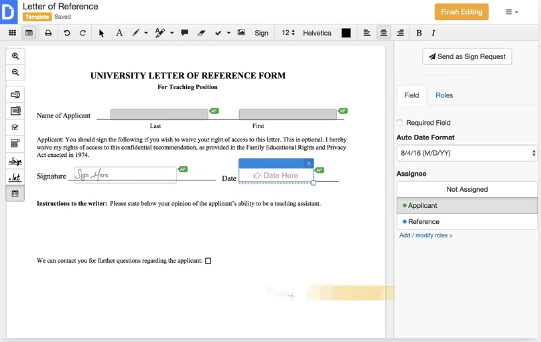
Conclusion
The choice between Ceros Pages and WordPress for your blogging and ecommerce needs ultimately depends on your specific requirements, goals, and resources. While Ceros Pages excels in creating visually captivating and interactive content, WordPress offers a more comprehensive set of features and a broader ecosystem of tools and support.
Carefully evaluate your business objectives, technical expertise, and plans for future growth to determine the platform that best aligns with your needs. By making an informed decision, you can ensure that your online presence not only captivates your audience but also supports the long-term success of your blogging and ecommerce ventures.





